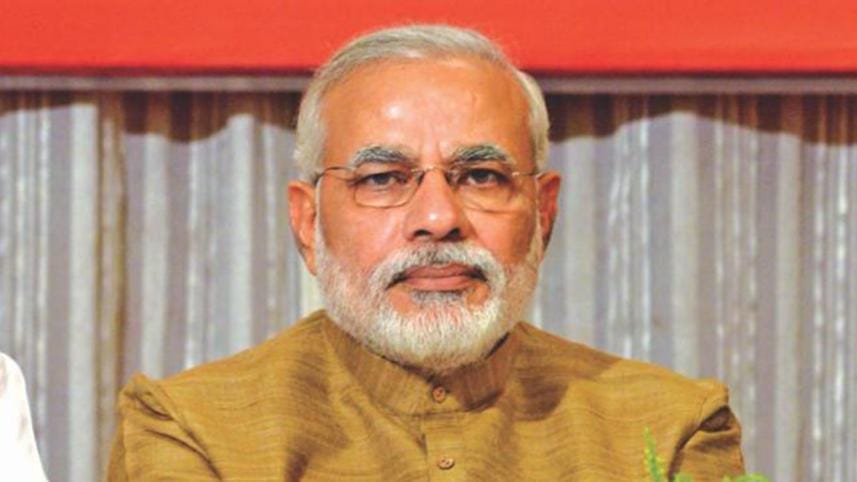India scraps Article 370 which grants special status to Jammu and Kashmir

In a landmark decision, the Bharatiya Janata Party government headed by Indian Prime Minister Narendra Modi today announced that Article 370 of the Constitution, which grants special status to Jammu and Kashmir state, has been removed.
Indian Home Minister Amit Shah made the announcement in parliament came after Modi presided a meeting of his cabinet at his official residence in India this morning, reports our New Delhi correspondent.
Jammu and Kashmir will also be "reorganised," Shah said with the state's bifurcation into two federally-ruled territories--Jammu and Kashmir and Ladakh, the correspondent added.
Shah moved a resolution in the Rajya Sabha that all clauses of Article 370 of the Constitution will not be applicable in the state.
Making a statement, Shah said this will come into effect when the Indian President signs giving assent and the central government notifies it.
The Upper House witnessed massive uproar soon after the announcement of the Home Minister, reports our New Delhi correspondent.
The mainstream political parties of Jammu and Kashmir yesterday held a joint meeting and adopted a joint resolution opposition to any infringement of the special constitutional status of the state, reports the correspondent.
"The leaders resolved that all the parties would be united to defend the identity, autonomy and special status of Jammu and Kashmir," a spokesman of the National Conference had told the media on Sunday.
The NC had a four-hour-long meeting of its party's political affairs committee (PAC) over the current situation in the Kashmir valley and the spokesman said the party is willing to go an extra mile to defend Article 370 and Article 35-A of the Constitution.
Article 370 gives militancy-hit Jammu and Kashmir its own Constitution and decision-making rights for all matters except defence, communications and foreign affairs.
The removal of Article 370 is a key plank of the BJP's ideological since long.
Article 370 is a temporary and transitional provision that was included in the Indian Constitution for Jammu and Kashmir's accession to India in 1947.
Article 370 made it necessary for the Indian government to get the state legislature's approval for introducing any policies or constitutional powers to the state.
Jammu and Kashmir will cease to be a state and become two federally-administered territories with two Lieutenant Governors. Ladakh, now part of Jammu and Kashmir, will be a federally-ruled territory without a legislature while Jammu and Kashmir will have a legislature.
The government's announcement of the big-ticket decision came in the backdrop of a huge build-up of security forces in sensitive Muslim-majority Kashmir Valley and security clampdown with senior leaders of mainstream political parties including former Chief Ministers Omar Abdullah of National Conference and Mehbooba Mufti of People's Democratic Party and Sajad Lone of People's Conference were placed under house arrest.
Lawmakers of opposition parties set off a ruckus in the Lok Sabha as they raised concerns about the Kashmir situation even as the House continued to transact business.
Lawmakers of the Congress, DMK, National Conference and Revolutionary Socialist Party were in the Well shouting slogans and demanding a reply from the government on the Kashmir situation. Opposition members continued with their sloganeering for more than an hour in the Lower House.
Internet and phone lines have been shut out of service in parts of Jammu and Kashmir. At least 10,000 paramilitary troops were rushed to Kashmir after the government said it was cancelling the Amarnath Yatra, a major annual pilgrimage of Hindus, and asked tourists and outsiders to leave the state.
All educational institutions and offices are closed in the state and groups have been banned from gathering in Kashmir and Jammu.
 For all latest news, follow The Daily Star's Google News channel.
For all latest news, follow The Daily Star's Google News channel.
Comments